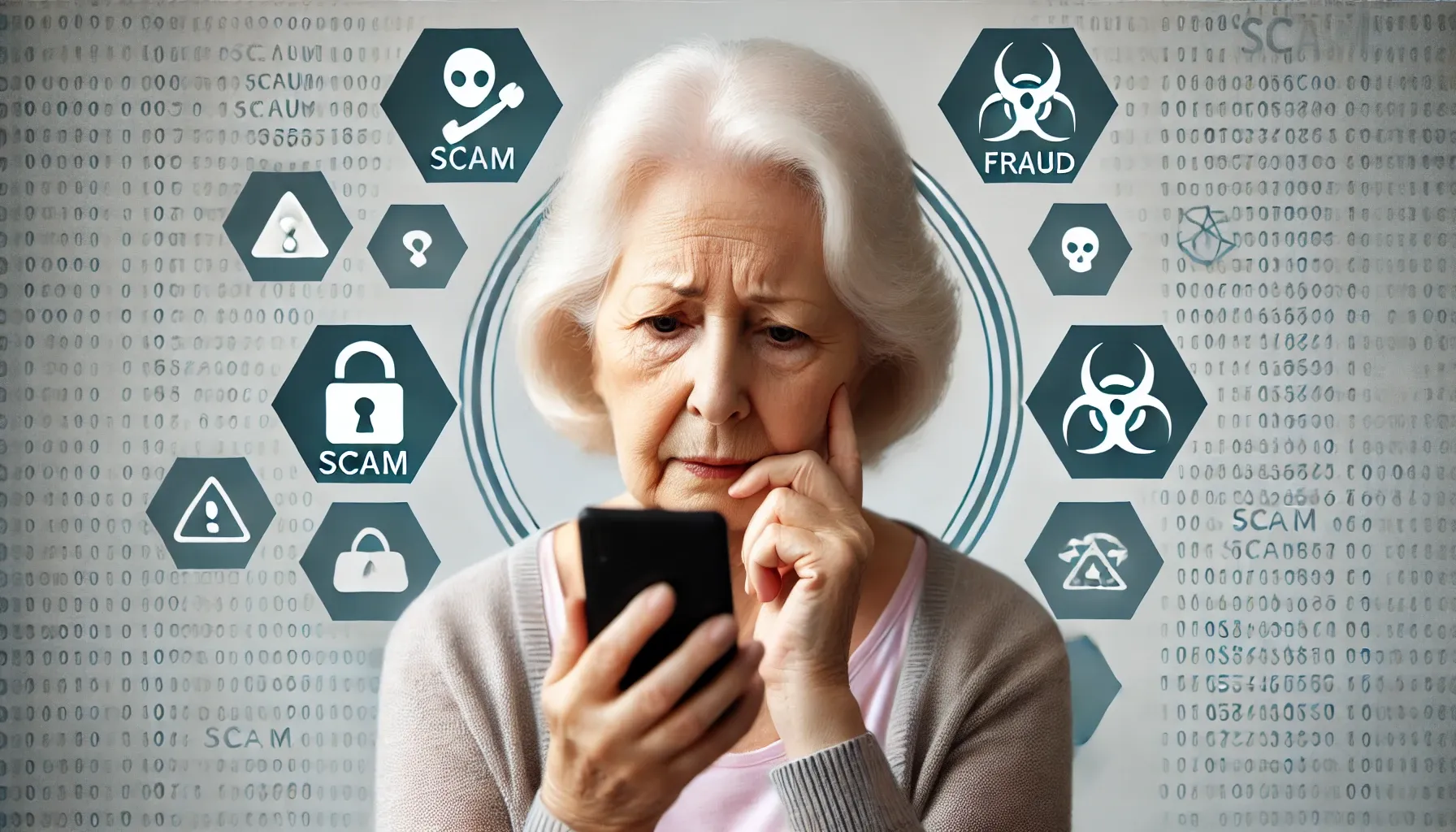Look Out For These Common Scams Targeting Seniors
Scammers often target seniors, taking advantage of their trust and generosity. Understanding the most common scams can help older adults and their families stay protected. Here are some of the top scams targeting seniors and how to avoid them.

1. Government Impersonation Scams
Fraudsters pose as officials from the IRS, Social Security Administration, or Medicare, claiming unpaid taxes or issues with benefits. They demand personal information or payment to resolve the issue.
How to Stay Safe:
Government agencies will never call you demanding payment.
Hang up and contact the official agency directly.
2. Grandparent Scams
Scammers pretend to be a grandchild in distress, asking for urgent financial help due to an emergency.
How to Stay Safe:
Always verify the caller’s identity by calling your grandchild or another family member.
Never wire money or provide banking details over the phone.
3. Lottery and Sweepstakes Scams
Seniors receive calls or emails claiming they’ve won a lottery but must pay a fee or taxes upfront to claim their prize.
How to Stay Safe:
Legitimate lotteries don’t require payments to receive winnings.
Never provide banking information to claim a prize.
4. Tech Support Scams
Scammers pose as tech support from well-known companies, claiming your computer has a virus and offering to fix it for a fee or by installing malware.
How to Stay Safe:
Never grant remote access to your computer to an unknown caller.
Contact your device manufacturer or a trusted local technician for help.
5. Medicare and Health Insurance Fraud
Scammers offer fake health services or medical equipment, asking for Medicare or insurance details to commit fraud.
How to Stay Safe:
Never share Medicare or insurance details with strangers.
Review Medicare statements for any suspicious charges.
6. Home Repair and Contractor Scams
Fraudulent contractors offer unnecessary or overpriced home repairs, taking payment without completing the work.
How to Stay Safe:
Always get multiple estimates and check credentials before hiring a contractor.
Avoid paying the full amount upfront.
7. Fake Charity Scams
Scammers pose as charities, especially after natural disasters, soliciting donations that don’t go to a real cause.
How to Stay Safe:
Verify charities through sites like CharityNavigator.org.
Never feel pressured to donate on the spot.
8. Bank and Credit Card Scams
Scammers call pretending to be from a bank, claiming suspicious activity and requesting account details to "verify" your identity.
How to Stay Safe:
Banks will never ask for sensitive details over the phone.
Call your bank directly using the number on your statement.
9. Investment and Retirement Scams
Scammers promise high-return, low-risk investments to take advantage of seniors looking to grow their savings.
How to Stay Safe:
Be wary of "too good to be true" investment opportunities.
Consult a trusted financial advisor before making investments.
How to Recover Money from a Scam
If you or a loved one has fallen victim to a scam, act quickly:
Contact your bank or credit card provider to report fraud.
File a complaint with the Federal Trade Commission (FTC) at reportfraud.ftc.gov.
Report the scam to your local law enforcement.

